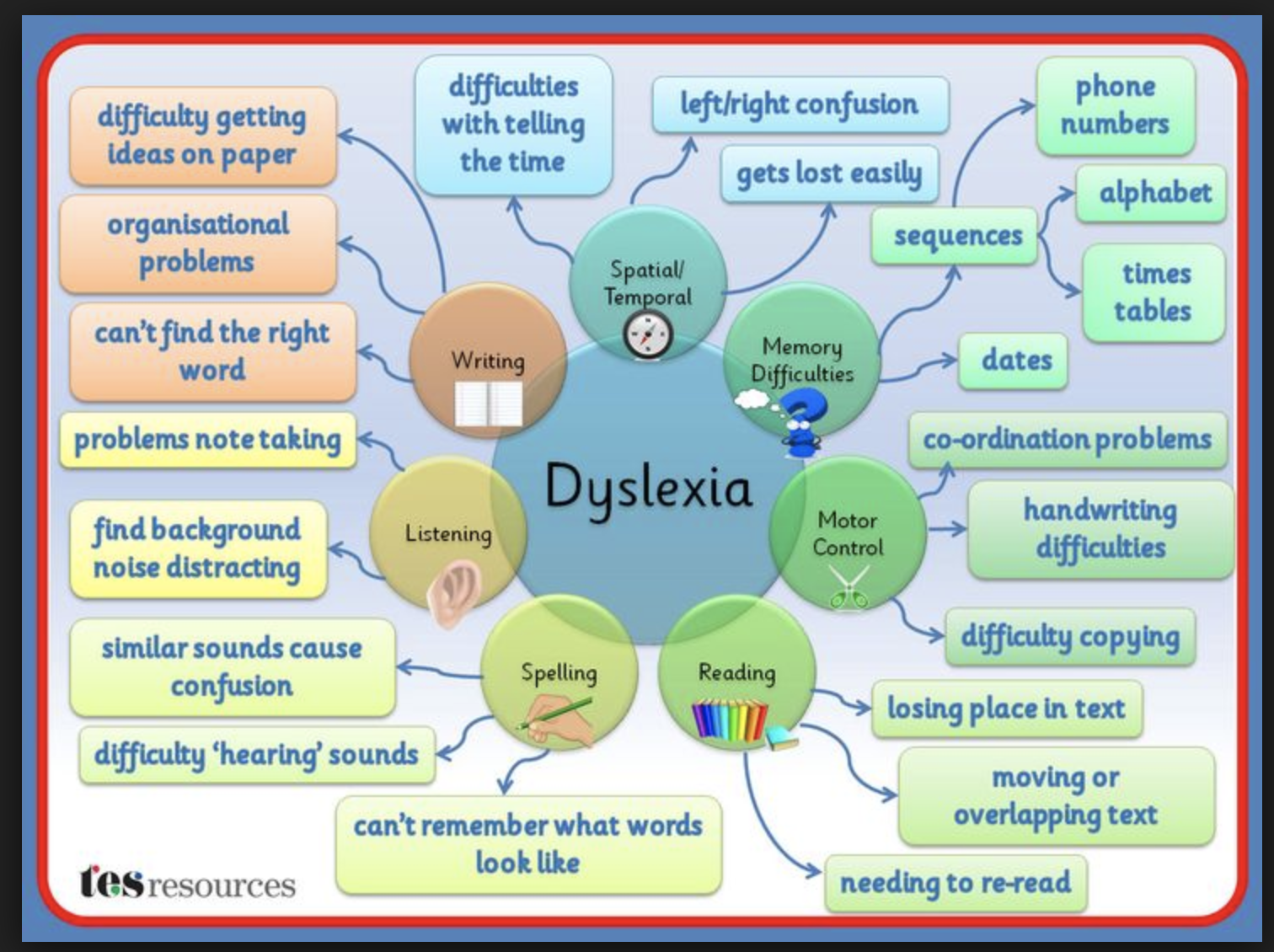WHAT IS DYSLEXIA?

There are many definitions of dyslexia. A very simple one would be that dyslexia is a specific learning difficulty which makes it hard for some people to learn to read, write and spell correctly. The Dyslexia Association of Ireland defines dyslexia as a specific learning difficulty affecting the acquisition of fluent and accurate reading and spelling skills. This occurs despite access to appropriate learning opportunities. People with dyslexia may experience greater stress and frustration as they endeavour to learn, resulting in heightened anxiety, particularly in relation to literacy acquisition. People with dyslexia may also have accompanying learning strengths
A problem learning to read and/or spell should alert parents and teachers that a specific learning disability such as dyslexia may be present. This applies particularly when a child’s progress seems at odds with his or her general level of ability. Each child with dyslexia has a unique profile of strengths and weaknesses. Indicators of dyslexia differ at different ages.